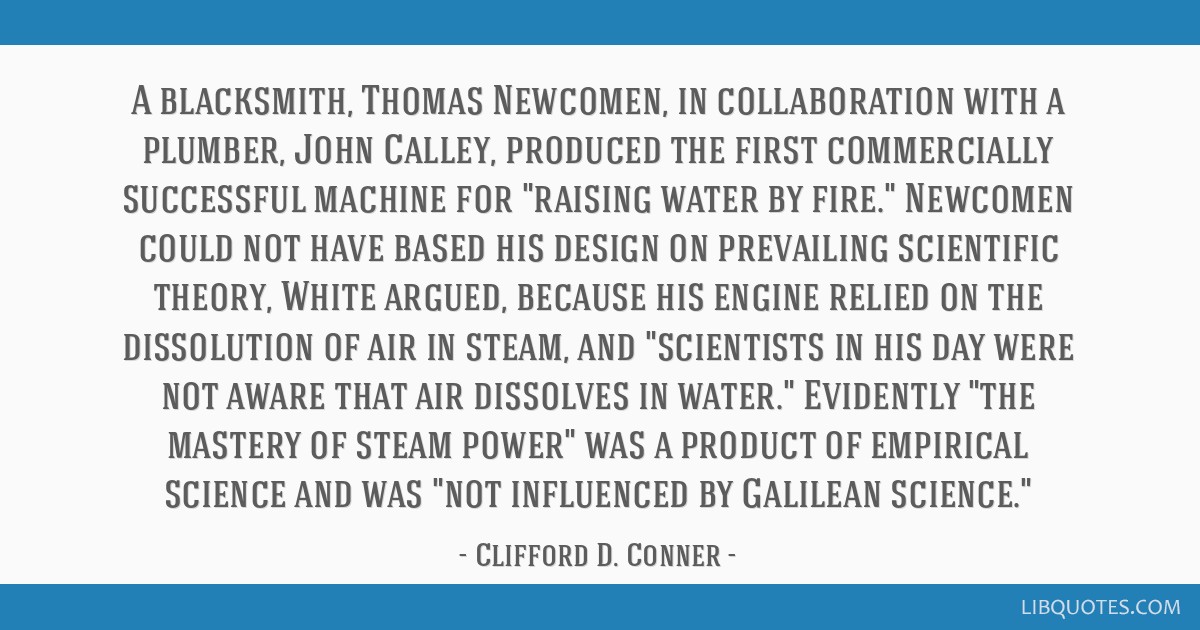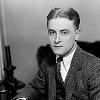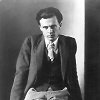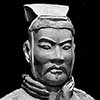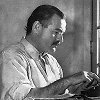A blacksmith, Thomas Newcomen, in collaboration with a plumber, John Calley, produced the first commercially successful machine for "raising water by fire." Newcomen could not have based his design on prevailing scientific theory, White argued, because his engine relied on the dissolution of air in steam, and "scientists in his day were not aware that air dissolves in water." Evidently "the mastery of steam power" was a product of empirical science and was "not influenced by Galilean science."
p. 229; Quoting from Lynn White, Jr., "Pumps and Pendula: Galileo and Technology," in Galileo Reappraised ed. Carlo Luigi Golino (1966). - A People's History of Science (2005)
